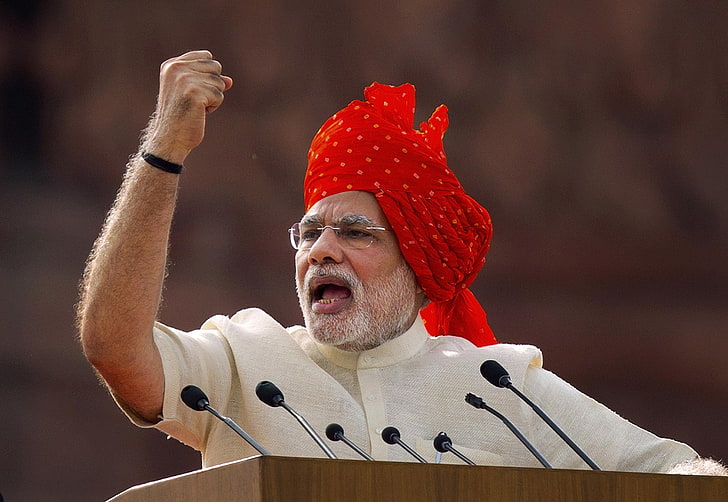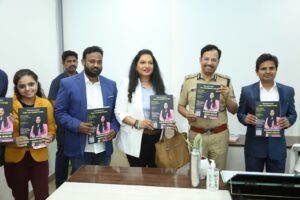PM Modi Accuses Congress of Dividing Nation: Calls for Unity With ‘Ek Hai Toh Safe Hai’ Message
4 min read
Prime Minister Narendra Modi recently raised a major concern about the Congress party’s approach to caste and communal issues, accusing it of deepening divisions in Indian society. Modi’s speech, delivered on National Unity Day, aimed to highlight the need for a united India and encouraged citizens to reject division, especially on caste lines. Emphasizing unity as a crucial factor for national security and progress, he invoked the phrase, “Ek Hai Toh Safe Hai” (“If united, we are safe”), underscoring that only a united nation can be resilient against both internal and external challenges. His remarks were particularly relevant in the context of the ongoing debates about caste-based census and reservation policies, which have become focal points in current political discourse, especially ahead of upcoming elections in key states.
Modi’s Critique of Congress and Its Caste Policies
PM Modi’s address targeted the Congress party’s policies and strategies, which he argued promote division rather than harmony. He alleged that the Congress has adopted divisive tactics, particularly by encouraging a caste-based census, which he warned could fragment the nation along community lines. According to Modi, this move is not genuinely intended to uplift marginalized communities but instead serves as a political strategy to gain influence and support from specific caste groups. He argued that the Congress’s focus on caste divisions is part of a larger strategy that could destabilize national unity.
The Prime Minister stated that these strategies are being used to create artificial rifts, warning citizens about the dangers of succumbing to political schemes that prioritize short-term electoral gains over the long-term interests of the country. Referring to the Congress’s recent calls for a caste census, Modi asserted that such initiatives would not necessarily benefit the people but instead create an environment where communities might feel pitted against each other, competing for resources and recognition. He emphasized that an inclusive, unified India can only thrive if communities see themselves as part of a single national fabric rather than divided entities.
“Ek Hai Toh Safe Hai” — The Call for Unity
Modi’s phrase, “Ek Hai Toh Safe Hai”, serves as a call for Indians to prioritize unity and social harmony over caste and religious divisions. Drawing from the legacy of Sardar Vallabhbhai Patel, who is celebrated for his role in unifying India post-independence, Modi underscored that true national security and resilience come from a collective sense of identity and purpose. He invoked Patel’s example to reinforce his message, saying that Patel’s vision was always of a united India, without divisions based on caste, community, or region.
The Prime Minister further argued that by promoting unity, India can more effectively resist external threats and attempts by foreign entities to destabilize the country. He warned that divisive politics could weaken India’s standing on the global stage and jeopardize the progress made in recent years. According to Modi, a fractured society is more vulnerable to internal discord and external manipulation, whereas a united India can confidently move forward on the path of growth and global prominence.
Congress’s Response and the Caste Census Debate
In response, Congress leaders defended their stance, emphasizing that a caste census is essential to address deep-seated economic inequalities and ensure fair distribution of resources. Congress argues that such a census would provide an accurate demographic representation of marginalized groups, allowing the government to formulate policies that genuinely cater to their needs. The party has claimed that their support for a caste census is driven by a commitment to social justice and equity, ensuring that every community gets fair access to the nation’s resources based on its population proportion.
Congress spokespersons further accused Modi of diverting attention from pressing issues such as unemployment, inflation, and economic disparity. According to Congress, under Modi’s administration, the gap between the rich and the poor has widened significantly, and the government’s policies have largely favored wealthy and influential groups. By supporting a caste census, the Congress claims to be addressing these inequalities and ensuring that all communities benefit equally from India’s economic progress. Congress leaders also alleged that Modi’s rhetoric on unity is aimed at deflecting from these core economic issues and criticized him for allegedly fostering a climate of polarization.
Implications for Indian Politics
This debate over caste-based policies, reservation, and unity is likely to play a central role in the upcoming state elections, particularly in regions where caste dynamics are prominent. For instance, states like Maharashtra and Jharkhand, with complex caste-based social structures, could see this issue becoming a focal point in political campaigns. Modi’s emphasis on unity and his accusations against Congress may resonate with certain segments of the population who prioritize national unity and stability. On the other hand, the Congress’s advocacy for a caste census may appeal to communities who feel that their needs and rights have been neglected in existing policies.
The contrast between these approaches underscores a broader ideological divide: while Modi’s vision emphasizes a unified national identity, Congress champions an inclusive approach that seeks to empower underrepresented communities through targeted policies. This ideological clash is expected to influence the narrative of the elections and shape the way political parties appeal to voters.
Conclusion
Prime Minister Modi’s “Ek Hai Toh Safe Hai” slogan reflects a push for unity amidst a polarized political climate, where issues of caste and economic inequality are increasingly influencing public discourse. Modi’s critique of Congress’s caste census proposal highlights his concern over divisive politics and his desire for an India that stands together in the face of both internal and external challenges. Meanwhile, Congress defends its support for caste-based data collection as a means to rectify socio-economic disparities. As India prepares for crucial state elections, the public’s response to these divergent visions will provide insight into how Indians view the balance between unity and social justice in the country’s journey forward.







